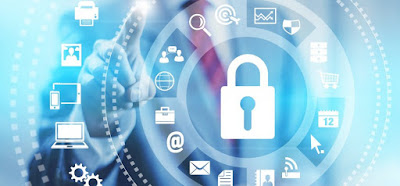Cyber Crime Will Be Worse in 2017 Than Ever Before
A recent Tripwire survey shows that when industries such as healthcare implement devices in their critical infrastructure systems, the more likely it is that there will be more Industrial Internet of Things (IIOT) cybersecurity attacks.
The vast majority of the IT security professionals surveyed--96 percent--said that they expected the cyber security world would see an increase in security attacks on IIoT during 2017. Around half of them also admitted that they feel unprepared for these security attacks that would abuse or exploit unsecured IIoT devices.
So not only will there be a rise in attacks, but there will also be a drop in security; a deadly combination.
Industry professionals are aware of the problem of the security of the Industrial Internet of Things, according to a statement by Tripwire CTO David Meltzer. Over half of the people who responded to the survey admitted they feel unprepared to spot and stop a cyber attack against IIoT.
Meltzer predicts there are only two ways things can go in the future: Either these security professionals increase their preparedness and are better able to deal with these attacks, or these attacks will be realized and the damage will be done.
Such is the reality all of us--whether small startups or large enterprises--must face today with our increasing reliance on connected technology.
64 Percent Increase in IIoT Attacks
The survey was sent to over 400 people who classified IT security as a major part of their job role. Just over two-thirds (64 percent) observed an increase in the popularity of IIoT attacks with hackers, which is why it is becoming so necessary to fortify defenses against these forms of attacks and protect data and information.
Even so, 90 percent of respondents said they feel IIoT deployments are only going to increase, while 94 percent admitted they believed that integrating IIoT will only increase the risk to--and vulnerability of--their organization. They know that it will likely make things riskier, but it seems corporations are willing to overlook the disadvantages of embracing IIoT in favor of the advantages.
The concern over cyber-attacks has stopped being so much about the potential loss of data, and is more about safety and availability. Think about energy utility: Rather than just losing customer data, an attack on an energy utility could leave people without power and have a dramatic effect on their lives and safety.
Healthcare Also Likely to Continue Getting Cyber Threats
Redspin released a report in February that showed healthcare is likely going to suffer from even more cyber security attacks in the future.
Their Breach Report from last year found that there was an increase in healthcare cyber security attacks--specifically, data breaches caused by hackers--of 320 percent in 2016 compared to 2015. 81 percent of the records that were breached last year were breached due to hacking attacks.
Dan Berger, vice president of healthcare IT consulting firm CynergisTek, said in a statement that healthcare providers have found themselves becoming the primary target of hackers, and that these hacking attacks are only becoming more sophisticated and disruptive.
The amount of attacks--and the high amount of compromised patient records as a result of these attacks--shows there is a major need for healthcare providers to create more comprehensive and proactive approaches to keeping information secure throughout this year and beyond.
Security expert Allison Main, of access management firm One Identity (formerly a Dell company), wrote that IIoT "is not about either safety or security, it is about having both in the changing world of smart manufacturing and the connected everything."
The takeaway
These cyber attacks show, without a shadow of a doubt, that every entrepreneur and small business owner needs better cyber security today more than ever. Security resources for entrepreneurs and small business owners are plentiful, thankfully. Knowing where to start can be a challenge, but this Inc piece by my colleague Joseph Steinberg is a great primer.
What are your top cyber security tips for small businesses?
SOURCE: http://www.inc.com/melissa-thompson/cyber-crime-will-be-worse-in-2017-than-ever-before-says-one-survey.html
SOURCE: http://www.inc.com/melissa-thompson/cyber-crime-will-be-worse-in-2017-than-ever-before-says-one-survey.html











Post a Comment